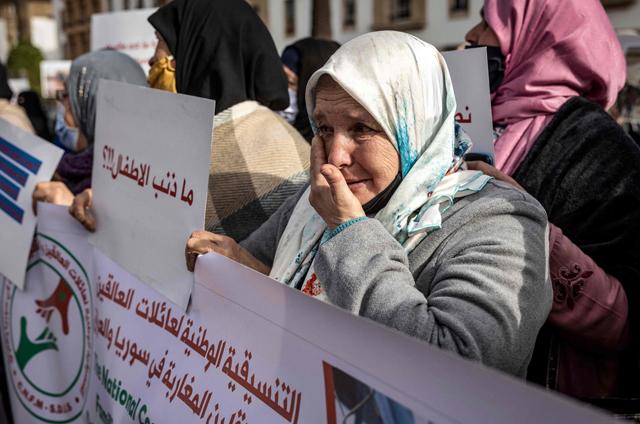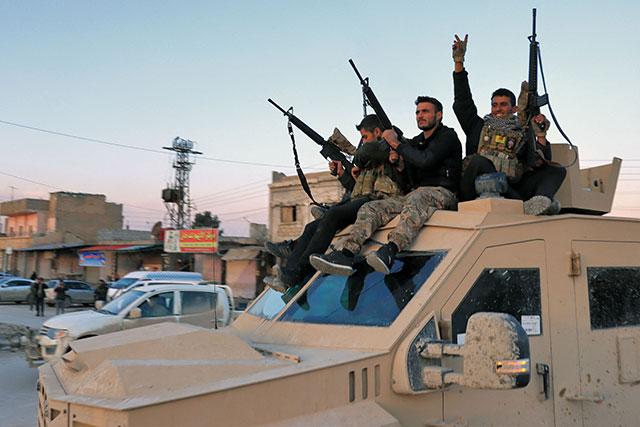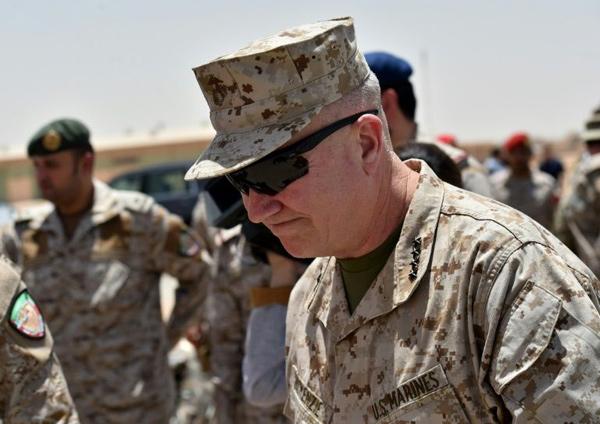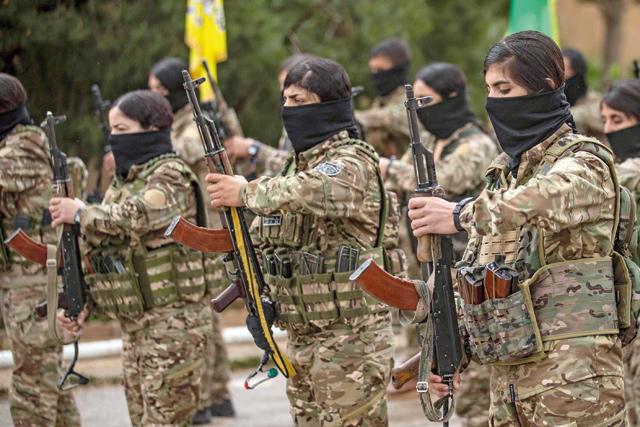You are here
US urges allies to repatriate Daesh detainees after Syria prison attack
By AFP - Jan 31,2022 - Last updated at Jan 31,2022

A member of the coordination of the families of Moroccans detained or stranded in Syria and Iraq, who are accused of having travelled to join the Daesh terror group, hold placards during a demonstration to demand their rapatriation, in the capital Rabat, on Friday (AFP photo)
WASHINGTON — The United States on Monday urged its allies to repatriate suspected Daesh terror group-linked nationals detained in northeast Syria, after the extremist organisation launched an attack on a prison to free its fighters.
Washington called on its partners in the international coalition to defeat Daesh, also referred to as ISIS, "to improve the secure and humane detention of ISIS fighters, support rehabilitation initiatives, and urgently repatriate their nationals and other detainees remaining in northeast Syria", in a statement from State Department spokesman Ned Price.
Daesh fighters on January 20 launched their biggest assault since the loss of their "caliphate" nearly three years ago, attacking the Ghwayran prison in the Kurdish-controlled northeast Syrian city of Hasakeh to free fellow militants, sparking battles that left over 370 dead.
After six days of intense fighting, the Kurdish-led Syrian Democratic Forces (SDF) announced on Wednesday they had recaptured the prison, but intermittent clashes continued until Saturday between Kurdish fighters and extremists near the jail.
Senior Daesh leaders were captured or killed during the fighting, Price said, praising the SDF "for their heroic and effective response to the attack".
Most nations have been reluctant to repatriate their Daesh suspects from northeast Syria, preferring to leave them in the custody of Kurdish authorities.
But the Kurdish administration has long warned it does not have the capacity to hold, let alone put on trial, all the Daesh fighters captured in years of operations.
Authorities say more than 50 nationalities are represented in Kurdish-run prisons holding more than 12,000 Daesh suspects.
The Kurdish administration's foreign policy chief Abdulkarim Omar said it was up to the international community to put foreign militants on trial or repatriate them.
The Daesh threat is "like a fireball, it gets more dangerous and complicated with time," he told AFP.
The self-declared Daesh caliphate, established in 2014, once straddled large parts of Iraq and Syria, a country wracked by civil war since 2011.
After five years of military operations conducted by local and international forces, Daesh's last rump was eventually flushed out on the banks of the Euphrates in eastern Syria in March 2019.
Related Articles
HASAKEH, Syria — Kurdish-led forces on Thursday found dozens of terrorists holed up in a Syrian prison as they carried out mop-up operation
QAMISHLI, Syria — US Central Command chief General Kenneth McKenzie on Monday visited Kurdish-led allies in northern Syria for the first tim
AL OMAR, Syria — Daesh forces remain as dangerous today as when they were ousted from their last Syrian bastion two years ago, Kurdish forces warned on Tuesday as they marked the anniversary.


















